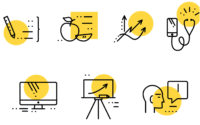
Reading in a post-textual era
This paper analyses major social shifts in reading by comparing publishing statistics with results of empirical research on reading. As media statistics suggest, the last five decades have seen two shifts: from textual to visual media, and with the advent of digital screens also from long-form to short-form texts. This was accompanied by new media-adequate […]
















